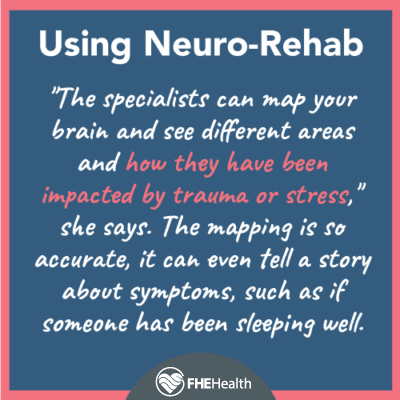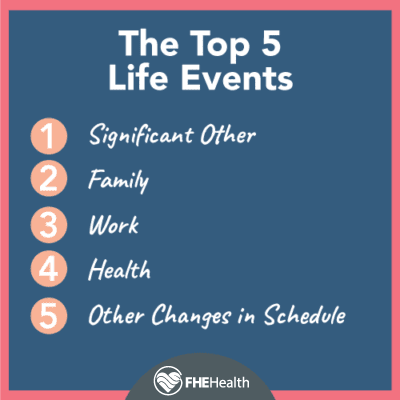
Updated on April 3, 2025
From premenstrual syndrome to pregnancy, women deal with many issues in life that are unique to their gender. Those life changes and other factors can lead women of all backgrounds and situations to experience mental health or addiction issues, and busy modern schedules don’t help.
Often, it’s challenging for women to take the time to consider what’s going on in their lives and how the connection between biological and environmental issues can affect their overall quality of life. Many women feel isolated, making it difficult for them to reach out to others who may be experiencing the same mental health challenges.
In some cases, connecting with other women in a group setting lets people open up on topics and challenges that they may not feel comfortable talking about in mixed company. This judgment-free environment lets women overcome feelings of isolation and give and receive emotional support, and it can be instrumental in helping them navigate stress.
Need Help?
Treatment can begin quickly and discreetly, get started now
What are the Important Life Events that Impact Women’s Mental Health?
While challenges with mental health and substance abuse certainly aren’t limited to women, five significant life events may have an impact on a woman’s mental health.
A Change in Status with a Significant Other
Any change to a woman’s status with a significant other can impact their mental health. According to the Holmes and Rahe stress scale, which has been a tool for social workers for decades, marriage scores 50 points, divorce scores 73, and the death of a spouse tops the list at 100. This shows that changes in relationship status are among the most stressful events a person may experience in their lifetime and can have a significant impact on women’s mental health.
While not all changes in relationship status are negative, they can all be disruptive to everyday life, making even happy changes a significant source of stress. Adding or removing a partner from everyday life can be disruptive, even if there isn’t a new relationship, the ending of a relationship, or death involved.
Women may experience heightened stress when a spouse faces imprisonment or injury or when they’re traveling for business. The absence is stressful, and when the couple comes together again after time apart, that strangeness can be stressful, too. On the flipside, women may also feel stress when their spouse is home more because they’re working from home or they’ve retired.
Changes in Household and Family Dynamics
Stress from changes with a spouse can be equally disruptive when they exist with other family members. For example, when a child moves out of the home or back in, this disruption can significantly impact a mother’s mental health. Similarly, taking care of an older parent or a chronically ill sibling can have a negative impact on women’s mental health. Other important life events can include losing a child or taking care of a very sick child.
Employment
It’s becoming increasingly socially acceptable for women to pursue a career instead of a traditional life at home with a spouse and children. Even so, many women have a difficult time finding a support system that helps them address the unique challenges they face in the workforce. Similarly, too many employers are behind the times when it comes to accommodating workers who are primary caregivers for children or parents, roles that fall largely on women. They may also face negative consequences for taking maternity leave or using unpaid time off to care for sick children.
Job stability is also a concern for many women, and this can cause stress that has negative effects on women’s mental health. During times when employers are making cutbacks and reorganizations, women may have their job roles redefined or risk losing their jobs altogether. Whether they lose their job or have to take on a heavier workload because of other cutbacks, their mental health care will be impacted.
Another job-related concern women may face may have little to do with their actual role and more to do with the environment they’re in. Harassment can affect both men and women, but currently, women are disproportionately likely to experience sexual harassment and violent threats, either from fellow employees, bosses, or customers. Similarly, one study indicates that about 4 out of 10 women have reported workplace discrimination, about double the number of men who reported discrimination. This is especially true in fields that have traditionally been male-dominated.
Personal Health
Puberty and menopause, along with all the hormone fluctuations that occur in the decades between those two events, can have a big impact on women’s mental health. On a week-to-week basis, women experience shifting hormones that affect stress levels, sleep quality, energy, appetite, motivation, and general wellness. Drops in estrogen that occur after ovulation, and even more significantly, after childbirth and during perimenopause, can cause depression. Treatment is available to help women manage this, but many women are misinformed or have no access to information on their options.
While childbirth, pregnancy loss and pregnancy scares undoubtedly have an impact on men, this impact doesn’t come close to what the woman herself experiences. It’s her body that’s going through significant changes, and in instances of loss, her grief tends to be more profound and long-lasting.
Other Changes in Schedule
Most people thrive when their days are predictable, and any change can be stressful. This is especially true with the pace of modern lives when significant life changes can come on fast and with little warning. Changes in work conditions, hours, where the individual lives, sleeping habits, eating habits, or whether they can take vacation or not are just some of the things that can impact a woman’s mental health. Often, people don’t realize the impact these types of changes may have.
Begin your recovery today
Ready to start? More questions about treatment?
Can Important Events in a Woman’s Life Cause Trauma?
According to a large national mental health study, more than half of women experience a traumatic life event during their lifetime. While these traumatic life events or their impact certainly aren’t exclusive to women, women are more likely to experience them.
Childhood Abuse or Neglect
According to a 2004 study observing the long-term consequences of physical abuse during childhood, findings showed that boys were more likely to be physically abused during childhood. However, abuse was more detrimental to girls and was associated with more long-term mental health consequences.
Sexual Assault
The National Sexual Violence Resource Center states that about 20 percent of women have experienced rape or attempted rape during their lifetime, and 81 percent of women experienced some form of sexual harassment or assault during their lifetime.
Pregnancy Trauma or Loss
According to March of Dimes, between 10 percent and 15 percent of known pregnancies result in miscarriage, and about one in 175 babies are stillborn. Regardless of the pregnancy stage in which the loss occurs, it can be devastating and bring grief that’s difficult to put into words. Even in pregnancies that result in a live baby, women can experience trauma if they experience months of extreme sickness, as is the case in hyperemesis gravidarum. Trauma may also occur during childbirth when complications arise or when a woman receives treatments that she isn’t informed of, doesn’t understand, or doesn’t consent to.
Death of a Spouse
According to one data source, about three out of four women become widows, with the average age of widowhood at just 59 years old. Women typically have a longer lifespan than men, meaning that most women will eventually experience the loss of their spouse. Unfortunately, because widowhood is so common, it’s easy to downplay the ongoing support women need after losing their spouse.
Start Treatment Now
Treatment can begin quickly and discretely, get started now
Why Don’t Women Seek Help for Dealing with Trauma?
Even though women are more likely than men to experience trauma, and about twice as many women as men experience post-traumatic stress disorder, too many women don’t seek mental health help. There are many reasons for this, ranging from social isolation to blaming themselves for the trauma. Traumatic life events like these typically come with ongoing challenges, such as financial instability, depression and anxiety, all of which can be barriers between women and professional mental health treatment.
The Emotional Weight Mothers May Carry
While motherhood is a goal and an important life event for many women, it comes with its own stress. Men are becoming increasingly involved in their children’s lives and have a more active role in their care, but much of the emotional labor still falls disproportionately on mothers.
Too often, women are the ones who schedule doctor and dentist appointments, meet with specialists and educators, plan meals, shop for clothing, juggle extracurricular activities and a myriad of other small tasks. Their partners are typically happy to jump in and help when asked, but they may be less likely to proactively manage household and child-rearing tasks. Even in households in which both partners strive for more equal labor distribution, gender roles are deeply ingrained and hard to shake. As a result, women tend to be the ones who make sure all the plates keep spinning, and in some cases, even as they’re managing their own careers.
Why is it Important for Women to Seek Mental Health Help When Life Becomes Unmanageable?
Pursuing help when life feels unmanageable, when grief runs too deep, or when emotional wounds from traumatic events feel too tender to prod doesn’t always come easily. However, for many women, this is the first step toward better mental health and an improved quality of life. This help can come in several forms, from support groups to one-on-one counseling with a mental health professional.
FHE Health Offers Assistance for Women’s Mental Health
 All of these important life events and the stress that comes with them are not unique to individual women. Women all over the country — even the globe — face these issues, and each person deals with them in a different way. When the impact on women’s mental health becomes overwhelming, though, individuals may begin to suffer from issues such as anxiety and depression. They may also begin abusing drugs or alcohol. In either case, FHE Health can help.
All of these important life events and the stress that comes with them are not unique to individual women. Women all over the country — even the globe — face these issues, and each person deals with them in a different way. When the impact on women’s mental health becomes overwhelming, though, individuals may begin to suffer from issues such as anxiety and depression. They may also begin abusing drugs or alcohol. In either case, FHE Health can help.
Neuro-rehabilitation allows specialists to map your brain and see different areas and how they have been impacted by trauma or stress. The mapping is so accurate that it can even tell a story about symptoms, such as whether someone has been sleeping well.
Once the issues are mapped, there are protocols to help heal these areas of the brain. In short, women can work with specialists to retrain specific areas of their brain to react in new, healthier ways to situations, stressors or even addiction triggers.
Our experience shows that if two different people experience the same type of trauma, they may react in different ways. One may be resilient while the other is crushed. The purpose of FHE Health is to teach individuals to have that resilience by developing protection, such as strong coping skills and a support network.
Finding Support and Healing at FHE Health
Ultimately, women should know that they are never alone in their struggles with mental health and they can always reach out for help. At FHE Health, they’ll find compassion, like-minded individuals and help to face whatever mental illness or substance abuse issues have begun to impact their lives.
About Kristina Robb-Dover
Kristina Robb-Dover is a content manager and writer with extensive editing and writing experience... read more







